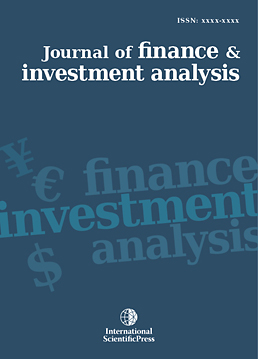Journal of Finance and Investment Analysis
Does Corporate Governance Reduce the Overinvestment of Free Cash Flow? Empirical Evidence from China
-
 [ Download ]
[ Download ]
- Times downloaded: 11467
Abstract
This paper theoretically and empirically investigates the relationship between corporate governance mechanisms and firm level overinvestment of free cash flow based on a broad cross-sectional sample of 1411 firm-year observations of listed companies in Shanghai and Shenzhen stock exchanges in China over the period 2003 to 2010. By following the creative approach to measure overinvestment and free cash flow suggested by Richardson (2006), the results show that there is a significantly positive association between overinvestment and free cash flow. Further analysis reveals that this positive association is mainly driven by state-owned enterprises sub-group. Finally, this paper explores the governance role of firm’s board of directors and debt financing in controlling overinvestment of free cash flow. The results indicate that state-owned enterprises with a large board of directors are more likely to engage in overinvestment of free cash flow. Contrary to the theoretical expectation, there is no evidence suggesting that the independence of the board of directors, as measured by either the proportion of non-executive directors on the board or the seperation of roles of board chairman and CEO, is significantly negatively associated with overinvestment of free cash flow. However, I find that both short-term debt (debt maturity structure) and total leverage can significantly reduce the likelihood of state-owned enterprises’ overinvestment. Furthermore, the governance role of short-term debt in constraining overinvestment is even stronger for private-owned enterprises with high free cash flow and low growth opportunities. However, bank loan has no impact on the reduction in the degree of overinvestment of free cash flow. These results above show that the board of directors is ineffective in alleviating the firm’s level of overinvestment of free cash flow. According to relevant provisions of newly promulgated companies law in China, the board of directors should hold overall responsibility for ensuring that shareholders’ interests are not expropriated by self-interested managers, however, it does’t perform functions very well.
